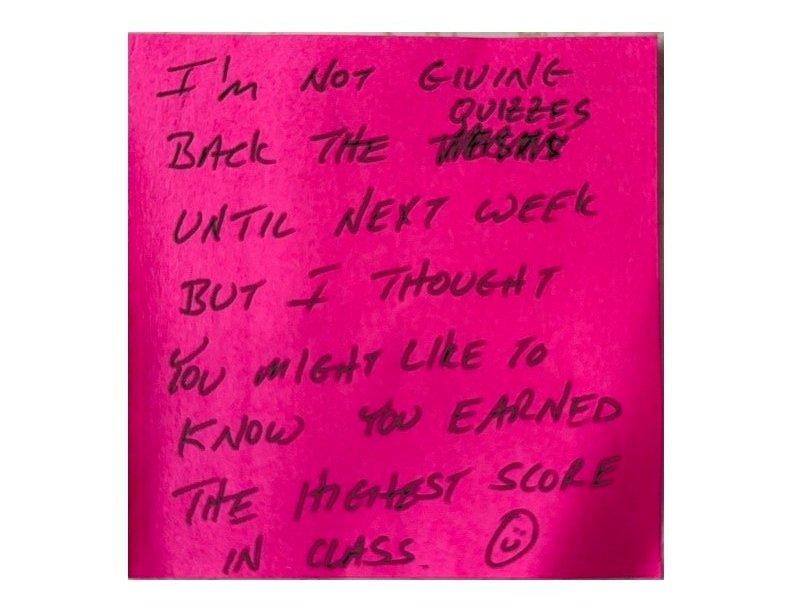My Dyslexia Doesn't Define Me
What is dyslexia? According to the Oxford Dictionary, it is “a condition of neurodevelopmental origin that mainly affects the ease with which a person reads, writes, and spells, typically recognized as a specific learning disorder in children.”
During the first few weeks of first grade, my teacher already noticed a gap in my reading and writing. I was sent to get tested for neurological disorders and found out I had dyslexia. After hearing this, my parents immediately enrolled me in a second school for children with learning deficiencies. I went to this extra school before “real school” and would come back before lunch, every day for two years. I was so embarrassed that I had a learning disability. At this age, a disability meant I needed a wheelchair or was missing a limb. I believed that because dyslexia is not a visible disability everyone would have thought I was lying. Therefore, I told no one, and no matter how many rumors went around, I held my ground.
You know when your parents are trying on names for you when you are born just waiting for one to stick? The same thing goes for rumors – they stick too – and gossip spreads even faster when the information is hurtful. My rumor stuck. I was now just a “lazy kid.”
For another perspective, I interviewed my former math teacher and head of student learning support at my school, Ms. Godard. She described stigmas that existed in the past about learning challenges as learning disabilities and then said, “Kids were labeled lazy and dumb. There was a lack of effort to come up with that one.” She read my mind thinking back on my early education. I was anything but a dull student. I got up before others did, my mom drove me an hour from my house to go to “special school,” and I was doing work before others woke up. But no, I was slothful, said to be sleeping in and coming to school when I wanted. Meg’s experience with other dyslexic students complemented my research and personal experience.
Once I graduated from “special school,” I was now full-time at “real school.” I could not keep up, and I was not suited for half thoughtout busywork, so I was labeled “dumb” and that name stuck too. In class, when we had numerous in-class assignments a week, others finished quickly to go play, while I spent my time making my work, my standard. I was taught to have quality work when my name was on the assignment. I was always trying to make the projects to the best of my ability.
Instead of acknowledging that I learn differently, I decided it was my priority to fit in. I was on a mission to make friends. I was still seen as the new kid in the tight-knit school, so I decided to try on a new persona. If something does not work try to go in a different direction, and the new persona fit quite well. I leaned into these labels. It worked, but at what cost; I was invited but insulted, I sat at their table but was their pet, and somehow I was second to my new “friends” – I was their punching bag.
Something settled in my head after years of this, and I knew something needed to change. My internal conflict of understanding who I am, along with all the signs that I was not inattentive or deficient to learning, were answered with a simple sticky note and a hug. My teachers play the biggest role in my life, especially the ones who saw my own growth, especially Mrs. Cohen. She was the one who was there in the beginning for me and is staying in my life forever. She was there in all the highest moments, and she was there for the lowest of the low. She is the light in my journey of life. She killed the virus without hurting the host with a single hug.
My middle school history teacher, who was preparing the class for future assignments in high school and college, reminded our class that she was giving the hardest test of the year and that we needed to study. This was difficult to accept, as I knew that for every quiz or test, I needed to study just to have the same score as someone who barely paid attention in class. I had to adapt, leading me to learn how to study in the most efficient way possible to succeed. This test scared me, so I studied weeks before the test. My motivation was to do better than the last assignment. We got our tests back and on mine, there was a sticky note covering the grade. I first thought I totally failed and she needed to hide my grade to save my dignity. I read the note: “I just wanted to let you know you got the highest grade.” I was so proud of myself to see how far I had come. I heard another student saying that he probably got the highest score because he has a photographic memory. I kept to myself leaving the class with a smile ear to ear.
Mrs. Cohen found me that day during my academic validation high and hugged me. She was so proud, hugging me and saying, “Look how far you have come. All your work is always worth it… you can do anything you put your mind to.” We could not help but cry. She has seen me read my first books, write my first papers, and now she will see me do “anything I put my mind to.”
I thank teachers like Meg and Mrs. Cohen, who motivate students and change students’ lives for the better. Whether you are having the greatest day or worst at school, dyslexic or not, teachers can frankly, change your life.
By Sarah Jannett

